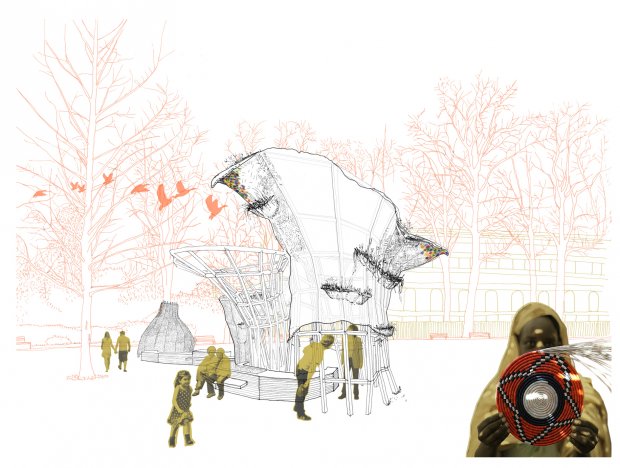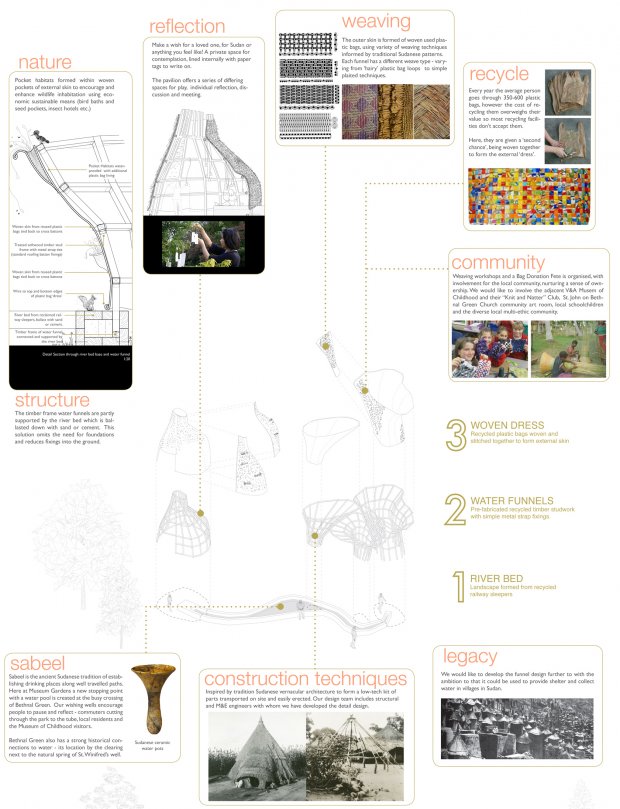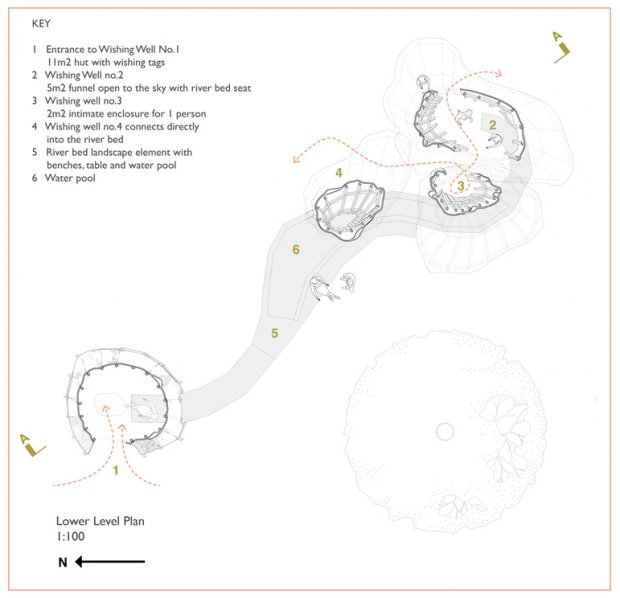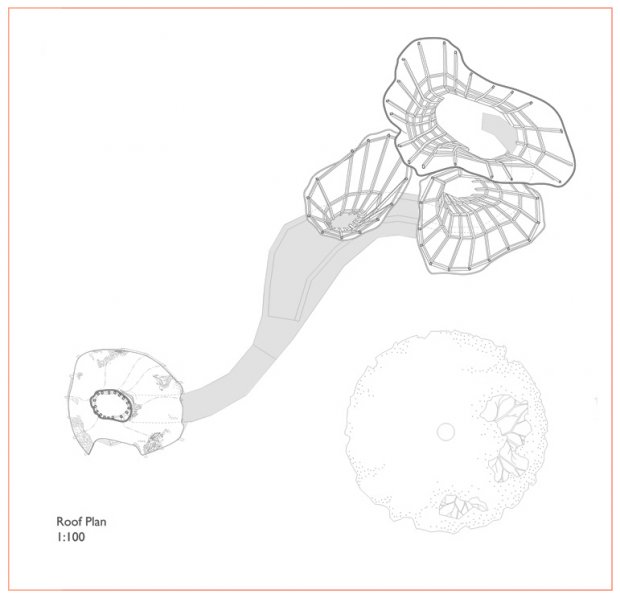Wishing Wells

Peace Pavilion using Traditional Weaving Techniques
The design takes inspiration from Sudanese natural landscapes: the deserts; rivers; oases, and the man-made. Water is a very important part of Sudanese culture. Sabeel, meaning “the way” and also “spring”, is a Sudanese tradition - as a welcoming gesture of kindness, earthenware pots of water are left outside houses and shops and along the roadside for passers-by to drink from.
The new pavilion is a series of four ‘Wishing wells”, linked together by a ribbon of water, a metaphor for the way in which the rivers connect North and South Sudan. The wells are shaped like water funnels taking cues from the surrounding tree canopies and reminiscent of traditional Sudanese roof huts. Three are inverted and grouped together, creating a generous canopy, somewhere to sit under and shelter. The last one creates an intimate enclosed space for reflection and leaving wishes: “We wish a peaceful future for North and South Sudan”.
The funnels are constructed using readily available, recycled materials and the pavilion is constructed in two phases, the first phase being when the frames are assembled, the second phase is when the frames are ‘dressed’ with woven fabric made from recycled plastic bags. Weaving is a very social activity in Sudan and so the local community will be involved in weaving the dresses for the funnels in a series of workshops and events.
The project is currently being developed with Arup Engineering and Nicola Antaki.




